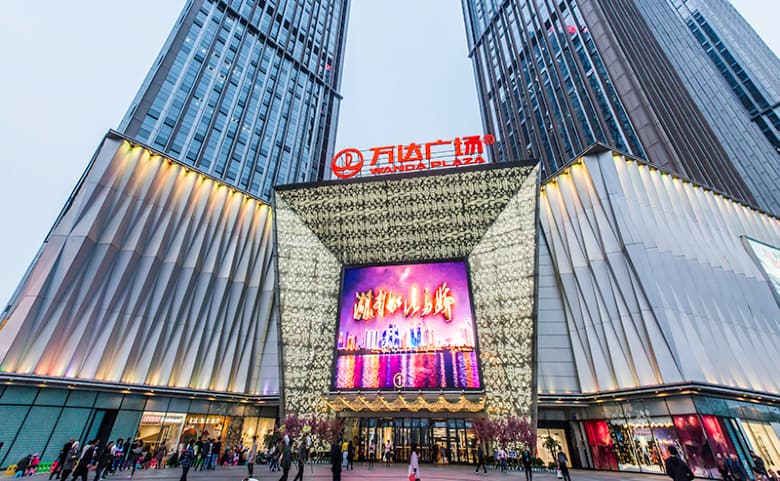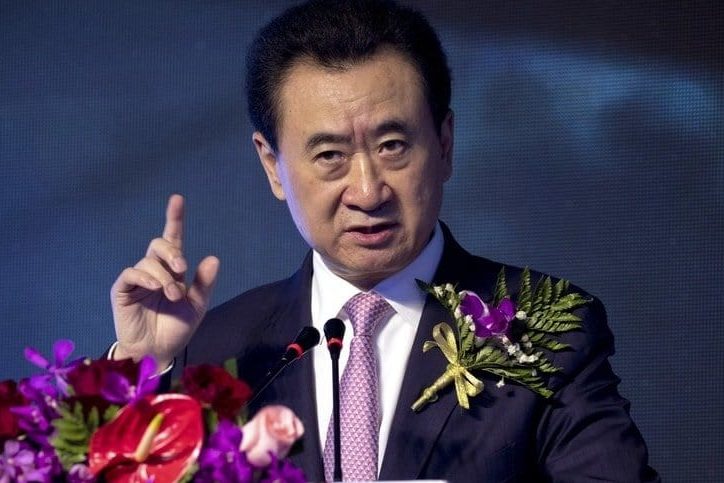
Wanda has given up its quest to be listed in mainland China
Dalian Wanda Commercial Management Group, the property arm of billionaire Wang Jianlin’s Beijing-based giant, has given up its nearly six-year quest to list on a mainland Chinese stock exchange, while leaving open the possibility of a future listing.
In a website bulletin issued Wednesday, Wanda Group announced that “based on the research and judgement of its own strategy”, Wanda Commercial had decided to “reorganise the company’s asset-light business operations, technology, data, personnel and other related resources to achieve domestic and overseas listing as soon as possible”.
“Therefore, the company decided to withdraw the Wanda Commercial A-share IPO application,” the group said.
The decision brings to a close this chapter of Wanda’s long and tortured history with capital-market fundraising — a tale that began with the developer’s record $3.7 billion Hong Kong IPO in 2014. That success gave way to dreams of a still-greater valuation on the mainland, which led the company to buy back its Hong Kong shares less than two years later.
Faded Glory
Wanda Commercial remained China’s top developer by operating income last year with RMB 35.5 billion ($5.4 billion), a full RMB 21 billion ahead of nearest rival Red Star Macalline, according to data provider CRIC. But the conglomerate helmed by Wang, Asia’s one-time richest man, is a far cry from its heyday in the middle years of last decade, when the group built a $5 billion overseas real estate portfolio.

Wang Jianlin has made a big decision today
Since that peak, Wanda has liquidated its assets worldwide as mainland authorities targeted major cross-border investors as part of a crackdown on outbound capital flows. This month brought news that Wanda had ceded majority control of AMC Theatres, the world’s biggest cinema chain, which the group had purchased outright for $2.6 billion in 2012.
It was in the midst of Wanda’s overseas spending binge that the group listed Wanda Commercial on the Hong Kong stock exchange in December 2014. For the IPO, Wanda offered shares in its China commercial property assets, including one of the country’s biggest chains of shopping malls and department stores.
Even as the outbound investment wave continued, Wang and Wanda sprang another surprise in April 2016 with the announcement of a $4 billion plan to first privatise Wanda Commercial, then relist it on a mainland bourse. After Swiss banking giant UBS walked away from the privatisation deal over structural concerns, Wanda completed the deal using private investors and the promise of juicy returns.
Still, efforts to list the property arm, including through a back-door listing deal with investment group Beijing Soft Rock, ultimately fell flat.
Slimming Down
With mainland authorities tightening credit conditions for developers, Wanda Commercial in recent years has shifted to joint ventures with financial backers to reduce its debt load. Operating income fell by 12 percent during COVID-hit 2020, per CRIC figures, but the developer has not backed away from its goal of opening 40 to 50 malls a year.
In pursuing what it calls an asset-light model, Wanda has been selling properties and developing projects under joint ventures with insurers and other backers in a bid to reduce risk after being targeted in a government drive to rein in indebted property developers.
As of March 2019, the group had dumped more than RMB 170 billion in assets since the end of 2016, shrinking its balance sheet by 20 percent.
Leave a Reply